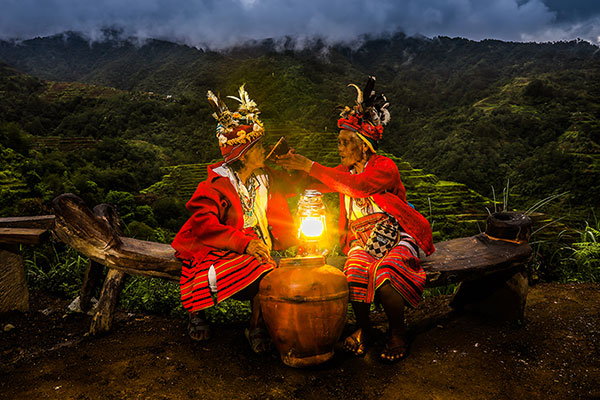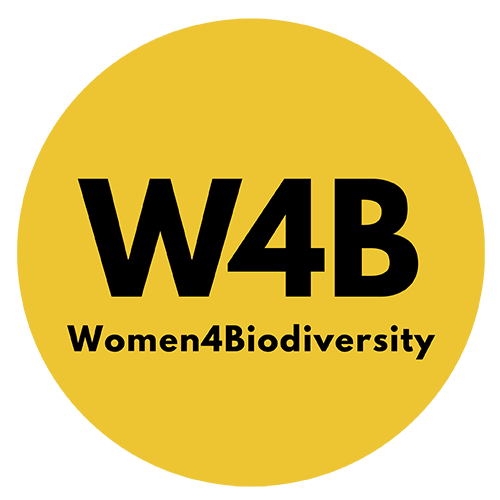WHAT
The Minamata Convention on Mercury is a global treaty committed to protecting human health and the environment from anthropogenic emissions and releases of mercury and mercury compounds. While the Convention addresses issues that significantly affect vulnerable populations, including women and children, gender considerations have not always been fully integrated into its implementation and decision-making processes.
To bridge this gap, the Women’s Caucus for the Minamata Convention on Mercury has been established as a collaborative platform to amplify the voices and leadership of women and gender rights advocates in mercury-related policy, research, and community engagement. The Women’s Caucus will work to ensure that gender equality, social inclusion, and human rights perspectives are embedded into the Convention’s processes and outcomes.
WHEN
Thursday, 12 June 2025 at 12.00 pm to 1.00 pm CEST. Please check your timezone here.
WHERE
Online event.
WHO
- Monika Stankiewicz, Executive Secretary, Minamata Convention on Mercury
- Lara Ognibene, Legal/Programme Officer, Minamata Convention on Mercury
- Anna Holthaus, Project Lead, Gender and Chemicals, MSP Institute
- Mrinalini Rai, Founder and Director, Women4Biodiversity – Moderator
WHY
- To oficially launch the Women’s Caucus for the Minamata Convention on Mercury.
- To share the vision, objectives, and roadmap of the Women’s Caucus.
- To introduce the two co-convening organizations i.e. Women4Biodiversity and MSP Institute (Multi-stakeholder Processes for Sustainable Development).
- To invite members of the Women’s Caucus to join and engage with the Caucus leading up to the Sixth meeting of the Conference of the Parties to the Minamata Convention on Mercury (COP 6).


Espanol
QUÉ
El Convenio de Minamata sobre el Mercurio es un tratado mundial cuyo objetivo es proteger la salud humana y el medio ambiente de las emisiones y liberaciones antropogénicas de mercurio y compuestos de mercurio. Aunque el Convenio aborda cuestiones que afectan significativamente a las poblaciones vulnerables, incluidas las mujeres y los niños, las consideraciones de género no siempre se han integrado plenamente en sus procesos de aplicación y toma de decisiones.
Para colmar esta laguna, se ha creado el Grupo de Mujeres para el Convenio de Minamata sobre el Mercurio como plataforma de colaboración para amplificar las voces y el liderazgo de las mujeres y los defensores de los derechos de género en las políticas, la investigación y la participación comunitaria relacionadas con el mercurio. El Caucus de Mujeres trabajará para garantizar que la igualdad de género, la inclusión social y las perspectivas de derechos humanos se integren en los procesos y resultados del Convenio.
CUÁNDO
Jueves, 12 de junio de 2025 de 12.00 a 13.00 CEST. Por favor, compruebe su zona horaria aquí.
DÓNDE
Evento en línea.
QUIÉN
- Monika Stankiewicz, Secretaria Ejecutiva, Convenio de Minamata sobre el Mercurio
- Lara Ognibene, Responsable Legal/Programa, Convenio de Minamata sobre el Mercurio
- Anna Holthaus, Jefa de Proyecto, Género y Sustancias Químicas, MSP Institute
- Mrinalini Rai, Fundadora y Directora, Women4Biodiversity – Moderadora
POR QUÉ
- Lanzar oficialmente el Grupo de Mujeres para el Convenio de Minamata sobre el Mercurio.
- Compartir la visión, los objetivos y la hoja de ruta del Grupo de Mujeres.
- Presentar a las dos organizaciones coorganizadoras: Women4Biodiversity y el Instituto MSP.
- Invitar a los miembros del Caucus de Mujeres a unirse y comprometerse con el Caucus de cara a la Sexta reunión de la Conferencia de las Partes del Convenio de Minamata sobre el Mercurio (COP 6).
Francais
QUOI
La Convention de Minamata sur le mercure est un traité mondial visant à protéger la santé humaine et l’environnement des émissions et rejets anthropiques de mercure et de composés du mercure. Bien que la Convention aborde des questions qui affectent de manière significative les populations vulnérables, y compris les femmes et les enfants, les considérations de genre n’ont pas toujours été pleinement intégrées dans ses processus de mise en œuvre et de prise de décision.
Pour combler cette lacune, le Caucus des femmes pour la Convention de Minamata sur le mercure a été créé en tant que plateforme de collaboration pour amplifier les voix et le leadership des femmes et des défenseurs des droits des femmes dans la politique, la recherche et l’engagement communautaire liés au mercure. Le Caucus des femmes veillera à ce que l’égalité des sexes, l’inclusion sociale et les perspectives des droits de l’homme soient intégrées dans les processus et les résultats de la Convention.
QUAND
Jeudi 12 juin 2025 de 12h00 à 13h00 CEST. Veuillez vérifier votre fuseau horaire ici.
Où
Événement en ligne.
QUI
- Monika Stankiewicz, Secrétaire exécutive, Convention de Minamata sur le mercure
- Lara Ognibene, Responsable juridique/programme, Convention de Minamata sur le mercure
- Anna Holthaus, Chef de projet, Genre et produits chimiques, MSP Institute
- Mrinalini Rai, Fondatrice et Directrice, Women4Biodiversity – Modératrice
POURQUOI
- Lancer officiellement le Caucus des femmes pour la Convention de Minamata sur le mercure.
- Partager la vision, les objectifs et la feuille de route du Caucus des femmes.
- Présenter les deux organisations coorganisatrices, à savoir Women4Biodiversity et MSP Institute.
- Inviter les membres du caucus des femmes à rejoindre le caucus et à s’y engager en vue de la sixième réunion de la conférence des parties à la convention de Minamata sur le mercure (COP 6).
Event Summary
The intersection of gender, biodiversity, and mercury pollution reveals critical and often overlooked environmental health and justice dimensions. Mercury pollution, particularly from artisanal and small-scale gold mining (ASGM), industrial emissions, and improper disposal, not only contaminates ecosystems but also disrupts the health and livelihoods of communities who depend on biodiversity for food, medicine, and culture. Women, especially Indigenous women and those in rural areas, often have close relationships with natural ecosystems through their roles as food gatherers, water stewards, and traditional knowledge holders. These roles place them on the frontlines of biodiversity conservation and exposure to toxic substances like mercury.
The Minamata Convention on Mercury is a vital global treaty committed to protecting human health and the environment from anthropogenic emissions and releases of mercury and mercury compounds. While the Convention addresses issues that significantly affect vulnerable populations, including women and children, gender considerations have not always been fully integrated into its implementation and decision-making processes.
To bridge this gap, the Women’s Caucus for the Minamata Convention has been established as a collaborative platform to amplify the voices and leadership of women and gender rights advocates in mercury-related policy, research, and community engagement. The Caucus will work to ensure that gender equality, social inclusion, and human rights perspectives are embedded into the Convention’s processes and outcomes.

This webinar officially launched the Women’s Caucus for the Minamata Convention on Mercury, spotlighting the disproportionate impacts of mercury on women and girls. Mrinalini Rai, Founder and Director of Women4Biodiversity, opened the session by highlighting how gender roles in different sectors increase women’s exposure to mercury. Monika Stankiewicz, Executive Secretary of the Convention, appreciated the growing collaboration around gender integration. Lara Ognibene, Legal/Programme Officer of the Convention, highlighted the Convention’s efforts to address the disproportionate impact of mercury on women and girls. The participants discussed the importance of convening individuals and organisations to strategise and discuss gender-related issues within the convention. Monika appreciated the overwhelming interest in forming a women’s caucus.

Lara also introduced key discussions on mercury’s harmful effects on women’s health, fertility, and child development. She emphasized the Convention’s recent amendments, such as banning mercury-based cosmetics, and spotlighted the Minamata Convention’s Gender Action Plan adopted at COP 5 in 2023. Lara also encouraged participation in upcoming events and presented the national action plans involving women’s groups and gender-responsive implementation strategies.

Anna Holthaus, Project Lead of Gender and Chemicals at the MSP Institute, presented ongoing work on integrating gender perspectives into chemicals and waste management policy, reinforcing the importance of feminist advocacy within the Convention. As co-convenors of the Women’s Caucus for the Minamata Convention, Anna and Mrinalini introduced the Women’s Caucus as a space for strategy, solidarity, and capacity-building ahead of COP 6 in Geneva. The caucus will coordinate advocacy efforts, facilitate knowledge-sharing, and strengthen partnerships, with communication channels including a mailing list, social media, and regular webinars.

Membership is open to all who want to engage in the process of gender and mercury pollution. Become a member now and #MakeMercuryHistory!




